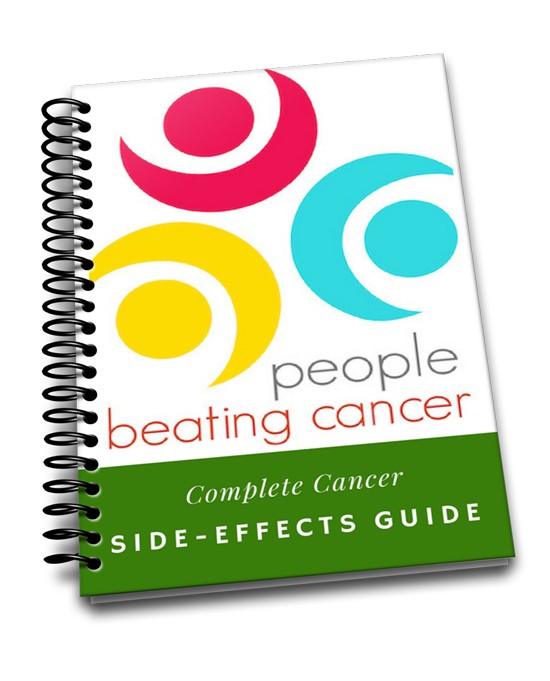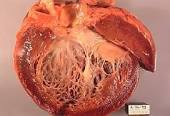
Diagnosed with Cancer? Your two greatest challenges are understanding cancer and understanding possible side effects from chemo and radiation. Knowledge is Power!
Learn about conventional, complementary, and integrative therapies.
Dealing with treatment side effects? Learn about evidence-based therapies to alleviate your symptoms.
Click the orange button to the right to learn more.
- You are here:
- Home »
- Blog »
- side effects ID and prevention »
- Evidence Heart Disease is “Weak”
Evidence Heart Disease is “Weak”

This problem (weak evidence) is by no means unique to heart disease. Many medical decisions are based on weak evidence or even human hunches rather than high-quality evidence…
Evidence-based medicine is the cornerstone of both oncology and cardiology- managing heart disease. The problem is, according to the study linked below, when it comes to cardiology, the “evidence” in evidence-based medicine is weak. Frankly, I’m okay with this. After spending the first three years of my cancer treatment (1994-1997) adhering strickly to strong evidence-based medicine and the associated FDA approved therapies, I learned that evidence-based conventional therapies don’t mean much.
I developed short, long-term and late stage side effects, relapsed twice and was told that “nothing more could be done for me.” I developed heart disease in the form of chemotherapy-induced cardiomyopathy fully 15 years after my autologous stem cell Transplant.
I decided to approach my chemotherapy-induced cardiomyopathy differently. I make decisions about my therapy based on weak evidence all the time. Well, at least my cardiologist would call this evidence weak.
However, my oncologists and my cardiologist don’t feel the same way I do. At my 1/19 cardiology appointment Dr. Moudgil questioned the “veracity” of the studies supporting my evidence-based medicine citing the heart healthy benefit of my nutritional supplementation. Dr. Moudgil and I agreed to disagree…
Just so we understand the terminology, if strong evidence is randomized controlled trials then weak evidence is any form of research this is not a randomized controlled trial.
Dr. Moudgil diagnosed me as having chemotherapy-induced atrial fibrillation and cardiomyopathy. I have to ignore the fact that my oncologists prescribed four different cardiotoxic therapies. Regimens that did little for my cancer yet somehow damaged my heart in such a way that wouldn’t show up for years after my conventional treatment.
But I digress…at this point all Dr. Moudgil was trying to do was lower my blood pressure as much as he could. So he prescribed metoprolol. The articles below cause me to wonder what sort of evidence Dr. Moudgil is relying on to prescribe this medicine for me. Especially considering the many side effects that Metroprolol can cause.
“Serious side effects
Call your doctor right away if you have serious side effects. Call 911 if your symptoms feel life-threatening or if you think you’re having a medical emergency. Serious side effects and their symptoms can include the following:
- Low blood pressure (hypotension). Symptoms can include:
- severe dizziness
- lightheadedness
- fainting
- Cold hands and feet. Symptoms can include
- hands and feet that are cold and may be painful
- Very slow heart rate (severe bradycardia)
- Extreme fatigue. Symptoms can include:
- feeling more tired than usual
- tiredness that gets progressively worse each day
- Serious depression. Symptoms can include:
- continuous feelings of sadness or anxiety
- feelings of hopelessness or worthlessness
- lack of interest in hobbies you once enjoyed
- eating too much or too little
- trouble concentrating”
I’m having another echo followed by another appointment with Dr. Moudgil in a few days. I used the Internet to research a few “evidence-based” therapies to lower my blood pressure. I want to see if my nutritional supplementation, nutrition, and frequent/moderate exercise can lower my blood pressure enough for me to forgo Metroprolol.
I’ll keep you posted.
Do you take Metroprolol? Do you have heart disease? Scroll down the page, post a question or comment and I will reply to you ASAP.
- Learn more about chemotherapy-induced cardiomyopathy- click now
- To Learn More about Heart Healthy Nutrition- click now
- Learn More about “evidence-based medicine” in MM treatments
Thanks.
David Emerson
- Cancer Survivor
- Cancer Coach
- Director PeopleBeatingCancer
Recommended Reading-
- Your Cancer Diagnosis- A How-To Guide
- Got Heart Failure? Get Brain Training, Exercise, Supplements, Diet
- Discover the Health Benefits of C-B-D
Many Guidelines For Heart Care Rely On Weak Evidence
“Doctors turn to professional guidelines to help them identify the latest thinking on appropriate medical treatments, but a study out Friday finds that in the realm of heart disease, most of those guidelines aren’t based on the highest level of evidence…
A paper in JAMA, the journal of the American Medical Association, that was released online ahead of print, finds that less than 10 percent of cardiovascular guidelines are based on the most carefully conducted scientific studies, known as randomized controlled trials. A lot of the rest are based on much weaker evidence…
Colleagues who had done a similar analysis a decade ago came up with a surprising and disappointing observation: Only 12.5 percent of these guidelines are based on the highest level of evidence…
The new study concludes that only 8.5 percent of the guidelines are backed up by randomized controlled trials, in which people getting a treatment are compared with a similar group that isn’t…
Doctors, of course, can’t simply wait for the highest level of evidence. “If you’re in front of a patient, you need to do something,” he says. “You cannot say, ‘Hey we don’t know what to do.’ ” So patients get treated based on the best available advice, even if it is far from optimal.
Take, for example, a patient with a heart-valve problem. Cardiologists may choose one of a number of medicines to treat the condition, but it’s not clear how effective any option is…
An accompanying editorial in JAMA notes that some recommendations are so obvious that it wouldn’t be ethical to withhold a practice as part of a carefully constructed study. Dr. Robert Bonow at Northwestern University and Dr. Eugene Brunwald at Harvard-affiliated Brigham and Women’s Hospital, note it’s unlikely anyone would ever run a study to see whether it is truly beneficial to take a medical history and perform an exam in a patient with symptoms of heart failure.
“Although guidelines are imperfect and a work in progress,” they write, “they remain the cornerstone for informing clinical decisions…”
This problem is by no means unique to heart disease. Many medical decisions are based on weak evidence or even human hunches rather than high-quality evidence, and “reversals” of opinion are common. Oncologist Vinay Prasad at Oregon Health and Science University has studied that phenomenon…


